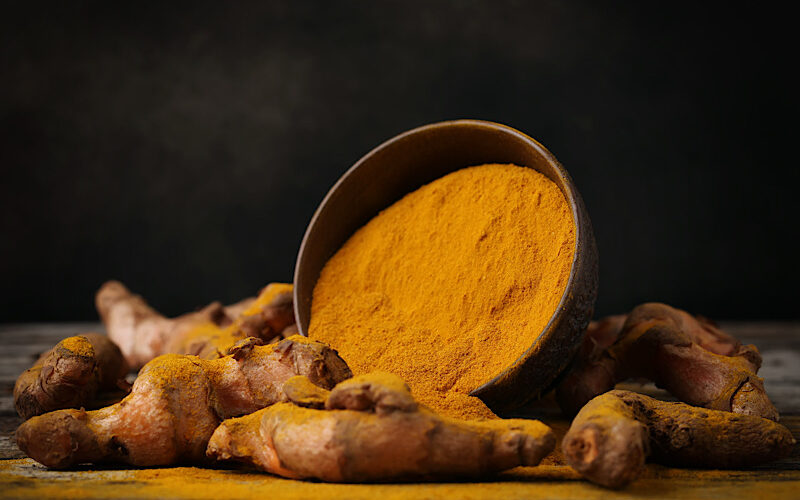By Sue Bedford (MSc Nutritional Therapy)
Turmeric, a culinary herb traditionally used in Asian cooking, has been thoroughly researched into its health benefits and has been found to be one of the most powerful herbs at fighting disease. It has also been used as a powerful anti-inflammatory in Chinese and Indian medicine for millennia.
Turmeric is a relative of ginger and looks very similar, but when the root is cut the distinctive yellow colour is revealed.
The main active compound in turmeric is curcumin
This compound has proven effects that are comparable to over-the-counter anti-inflammatory medications, but without the potentially harmful side effects
There is a lot of research currently focussed on the anti-inflammatory properties of curcumin with reams of studies showing its benefit in treating and/or helping to prevent a wide range of conditions such as arthritis, cancer, inflammatory bowel disease and heart disease amongst others.
One of the most powerful aspects of curcumin has been found to be the ability to control inflammation
Excess inflammation is known to be the root cause of a variety of imbalances and diseases in the body.
To help reduce inflammation as well as turmeric and curcumin, why not try to include as many of the following foods in your diet: berries, dark leafy greens, blueberries, pineapple, celery, beetroot, cruciferous vegetables, wild salmon and oily fish, coconut oil, fermented vegetables and probiotic foods.
Turmeric and ginger together are also fantastic at supporting anti-inflammatory pathways in the body
Ginger contains anti-inflammatory active compounds and so, together with turmeric, it’s a powerful combination.
Ginger helps to alleviate gastrointestinal issues, plays a role in reducing inflammation in the body, supports the immune system, rejuvenates skin and increases energy levels. It also contains anti- microbial properties.
Ginger also contains many important nutrients and vitamins including vitamin C, B5 and B6, along with a good amount of the mineral’s potassium, manganese, copper, and magnesium.
You can add these freshly grated roots to your meals, soups, smoothies or make an immune boosting and anti-inflammatory tea.
For some recipe ideas on how to add these powerful herbs to your diet, visit here
















